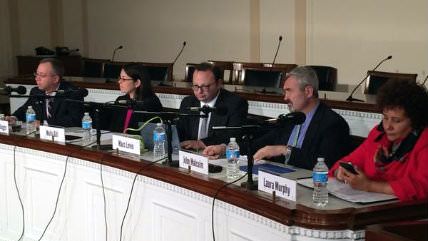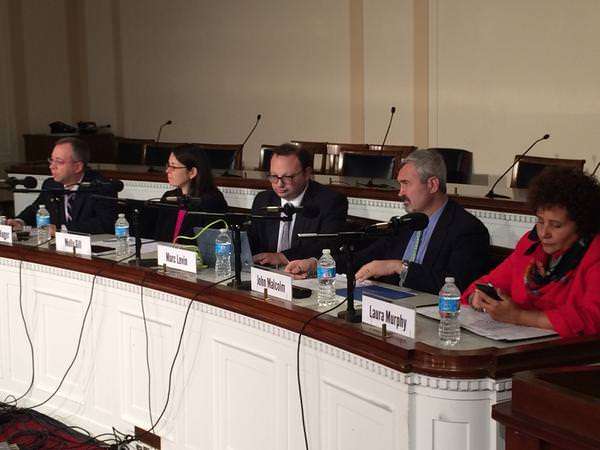Elizabeth Nolan Brown on the Bipartisan Appeal of Criminal Justice Reform


Yesterday afternoon, representatives from Families Against Mandatory Minimums (FAMM), the Charles Koch Institute, and the American Civil Liberties Union gathered before a packed audience to discuss "the future of bipartisan sentencing and prison reform." It's an area that many are hoping could gain real momentum in what's predicted to be an otherwise gridlocked Congress.
Part of the issue's popularity stems from the way it can capture the passions of disparate constituencies. For the budget cutter? Putting less nonviolent offenders in prison, for shorter times, will save the Department of Justice and state prison systems money. For the social-justice inclined? It will help lessen the impact of racially biased criminal-justice policy and practice. For those opposed to the federalization of criminal law? It returns more power to the state and local level. For those concerned with public safety? Getting less "tough on crime" seems to help curb crime.
But could crime policy really become a popular cause in Congress? Elizabeth Nolan Brown argues that the timing is right. We've got ample legislators looking to distinguish themselves in 2015—without compromising in any critical ideological area. Criminal justice reform is currently something of a political blank slate. As such, it holds hordes of potential for politicians looking to be seen as ideas people and show skill at "reaching across the aisle."


Show Comments (0)